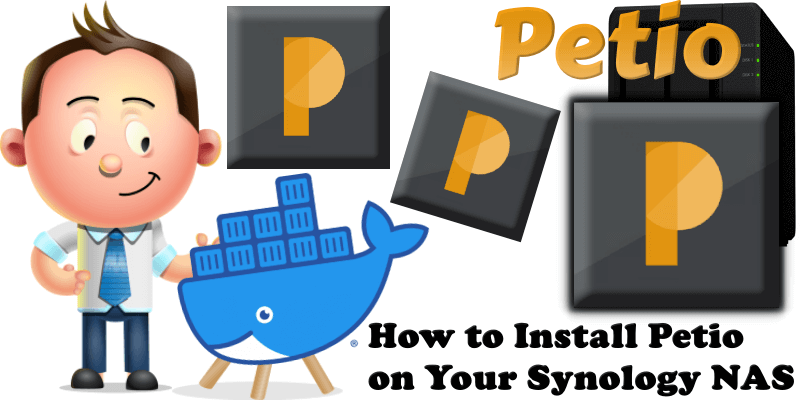
Petio is a third party companion app available to Plex server owners to allow their users to request, review and discover content. The app is built to appear instantly familiar and intuitive to even the most tech-agnostic users. Petio will help you manage requests from your users, connect to other third party apps such as Sonarr and Radarr, notify users when content is available and track request progress. Petio also allows users to discover media both on and off your server, quickly and easily find related content, and review to leave their opinion for other users. In this step by step guide I will show you how to install Petio on your Synology NAS using Docker.
This guide works perfectly with the latest Petio v0.5.5 release.
STEP 1
Please Support My work by Making a Donation.
STEP 2
Install Container Manager via Synology “Package Center”. If you run an older DSM version (under 7.2), search for Docker instead of Container Manager.
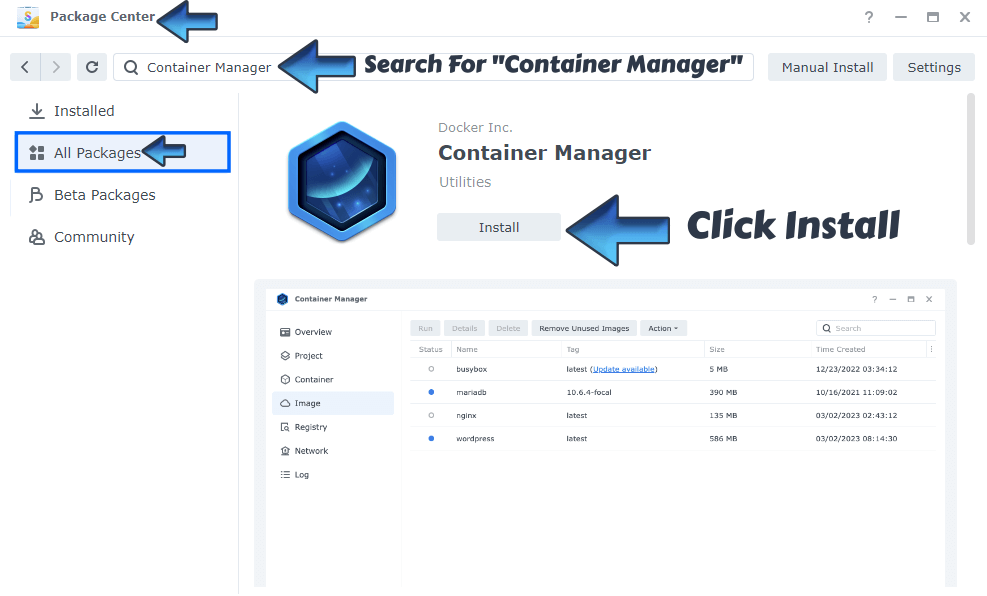
STEP 3
Install Plex on your Synology NAS using my Docker Guide. Skip this step if you already have Plex installed.
STEP 4
Go to File Station and open the docker folder. Inside the docker folder, create two new folders and name one petio and the other petiodb. Follow the instructions in the image below.
Note: Be careful to enter only lowercase, not uppercase letters.
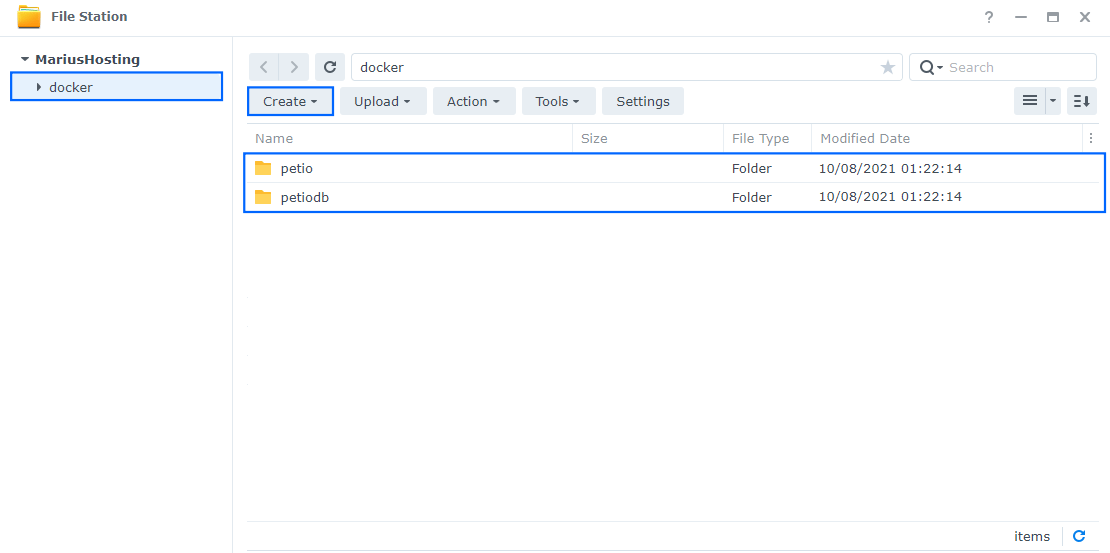
STEP 5
Now create two new folders inside the petio folder that you created at STEP 4 and name them config and logs. Follow the instructions in the image below.
Note: Be careful to enter only lowercase, not uppercase letters.
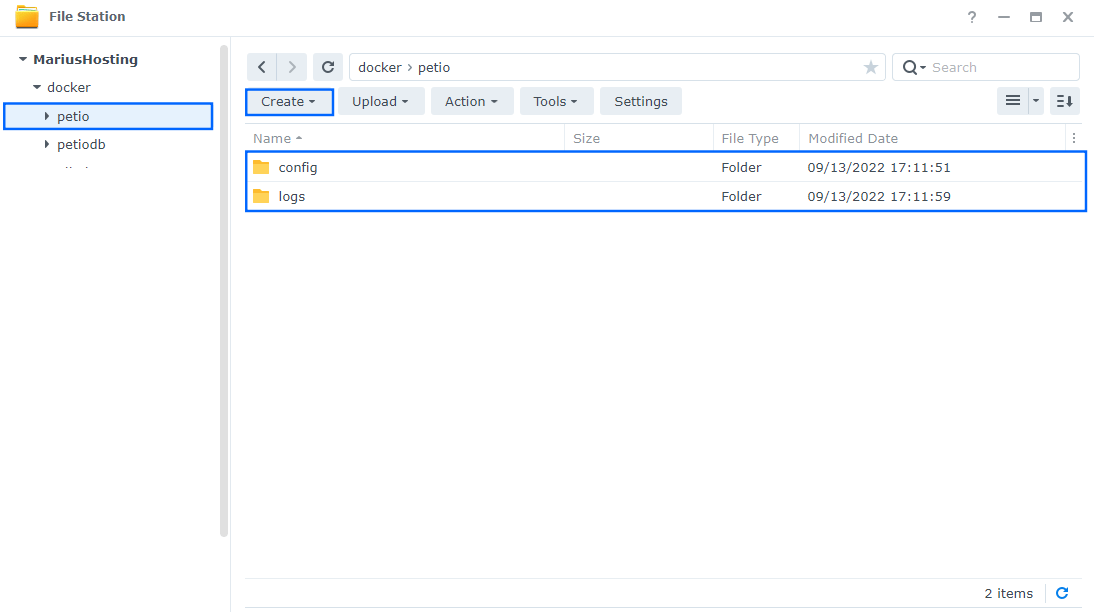
STEP 6
Install Portainer using my step by step guide. If you already have Portainer installed on your Synology NAS, skip this STEP. Attention: Make sure you have installed the latest Portainer version.
STEP 7
Log into Portainer using your username and password. On the left sidebar in Portainer, click on Home then Live connect. Follow the instructions in the image below.

On the left sidebar in Portainer, click on Stacks then + Add stack. Follow the instructions in the image below.

STEP 8
In the Name field type in petio. Follow the instructions in the image below.
version: '3'
networks:
petio-network:
driver: bridge
services:
petio:
image: ghcr.io/petio-team/petio:latest
container_name: Petio
hostname: petio
ports:
- 7778:7777
networks:
- petio-network
user: 1026:100
depends_on:
- mongo
environment:
- TZ=Europe/Bucharest
volumes:
- /volume1/docker/petio/config:/app/api/config
- /volume1/docker/petio/config:/app/logs
mongo:
image: mongo:4.4
container_name: Petio-DB
hostname: mongo
networks:
- petio-network
user: 1026:100
volumes:
- /volume1/docker/petiodb:/data/db
Note: Before you paste the code above in the Web editor area below, change the value numbers for user with your own PUID and PGID. (Follow my step by step guide on how to do this.)
Note: Before you paste the code above in the Web editor area below, change the value for TZ. (Select your current Time Zone from this list.)
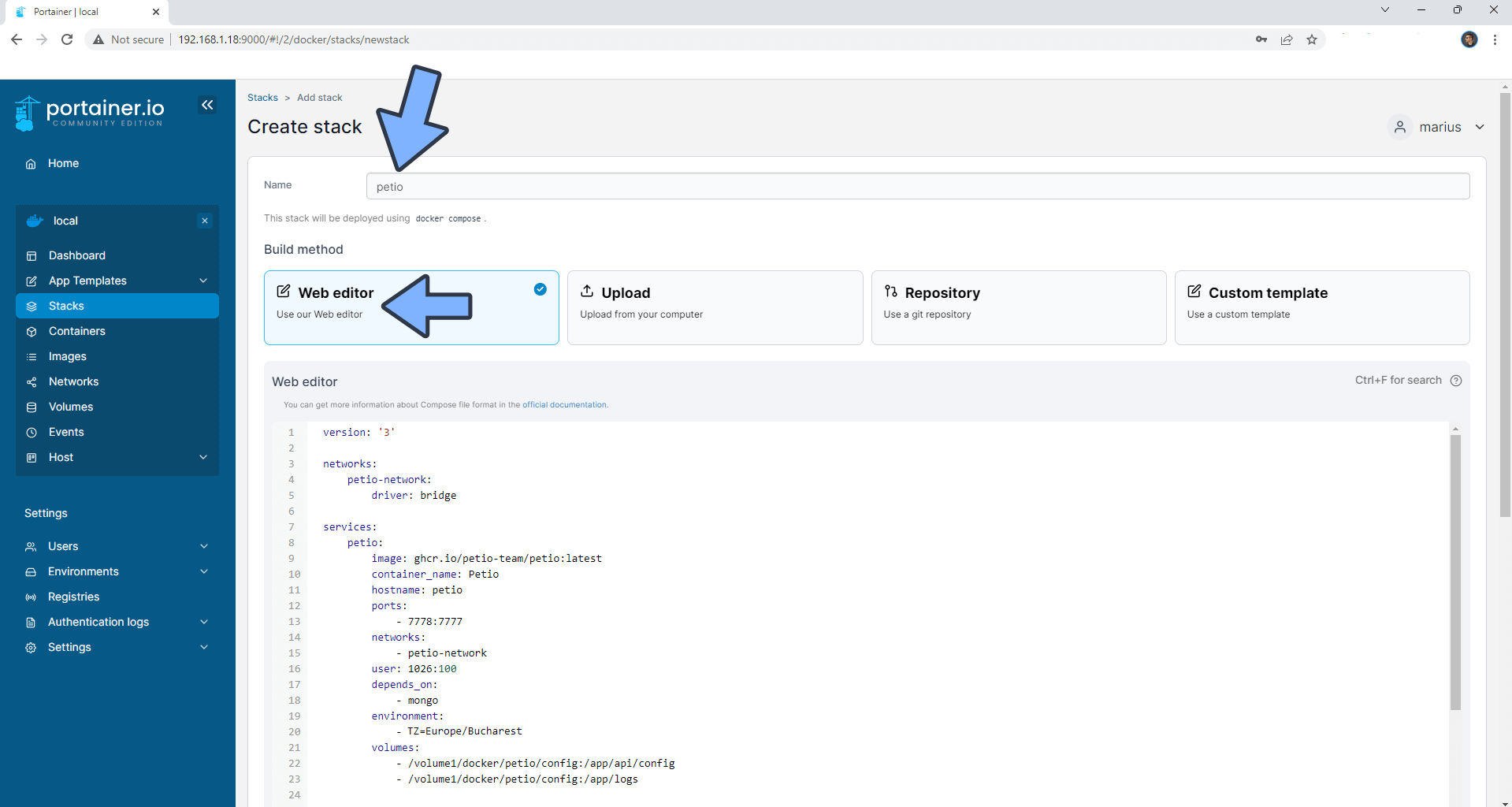
STEP 9
Scroll down on the page until you see a button named Deploy the stack. Click on it. Follow the instructions in the image below. The installation process can take up to a few minutes. It will depend on your Internet speed connection.
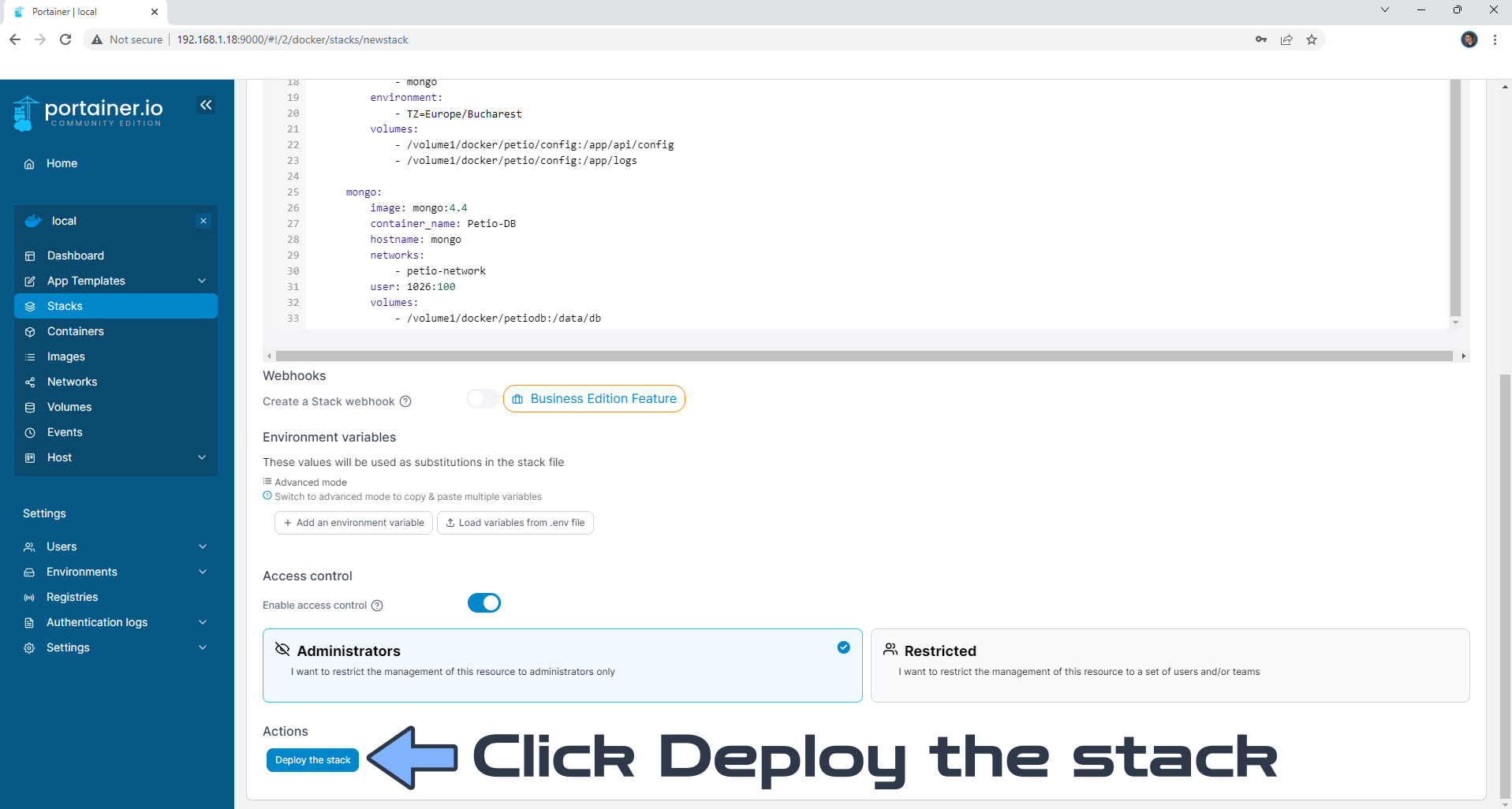
STEP 10
If everything goes right, you will see the following message at the top right of your screen: “Success Stack successfully deployed“.

STEP 11
🟢Please Support My work by Making a Donation. Almost 99,9% of the people that install something using my guides forget to support my work, or just ignore STEP 1. I’ve been very honest about this aspect of my work since the beginning: I don’t run any ADS, I don’t require subscriptions, paid or otherwise, I don’t collect IPs, emails, and I don’t have any referral links from Amazon or other merchants. I also don’t have any POP-UPs or COOKIES. I have repeatedly been told over the years how much I have contributed to the community. It’s something I love doing and have been honest about my passion since the beginning. But I also Need The Community to Support me Back to be able to continue doing this work.
STEP 12
Now open your browser and type in http://Synology-ip-address:7778 Click LOGIN WITH PLEX. Add your own Plex credentials. Follow the instructions in the image below.
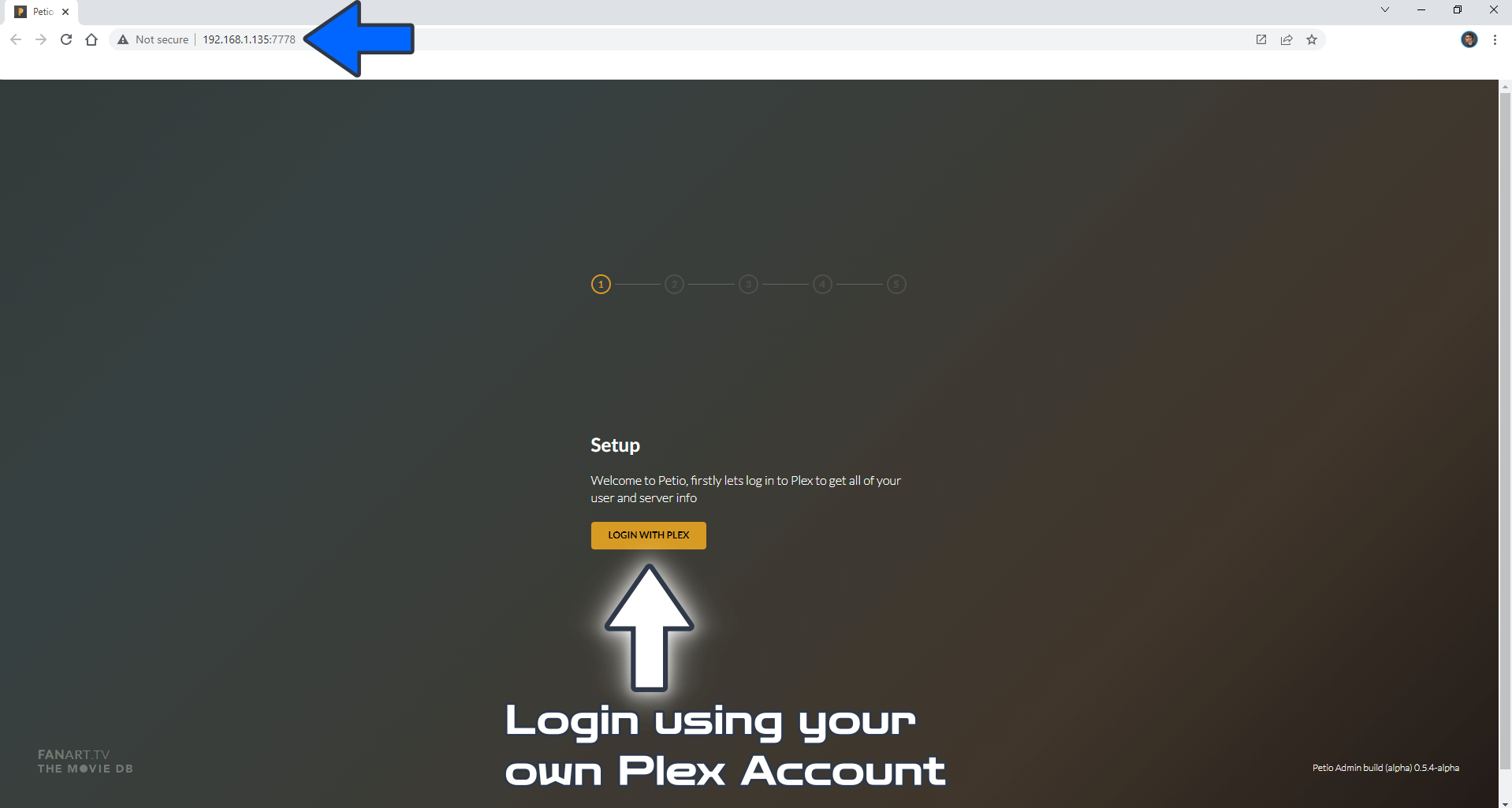
STEP 13
Add your own Petio Admin Password (you have to create one). Click Next. Follow the instructions in the image below.
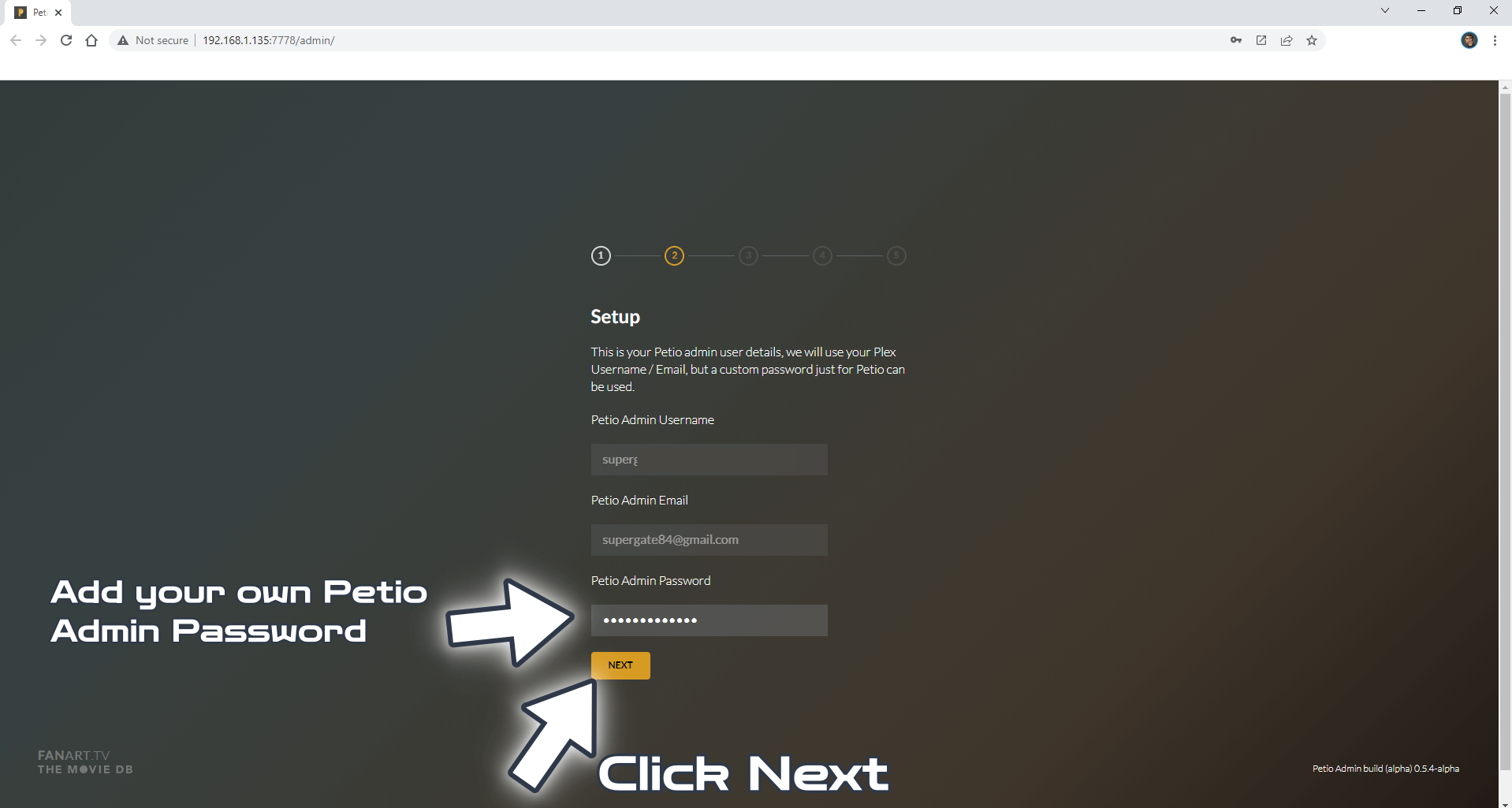
STEP 14
Select your own Plex Installation NAS IP from the list, then click Next. Follow the instructions in the image below.
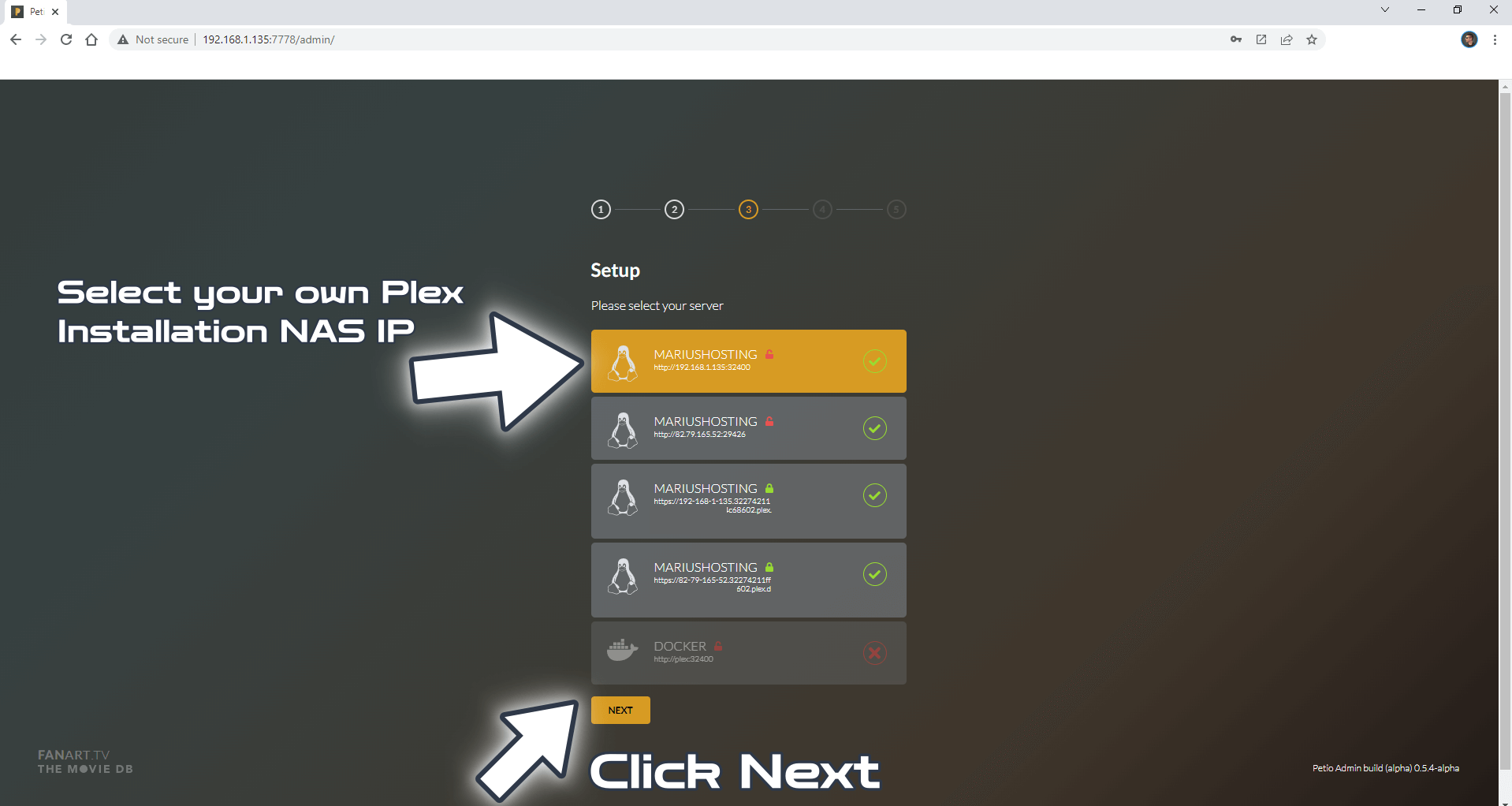
STEP 15
Test your Mongo Database, then click Finish. Follow the instructions in the image below.
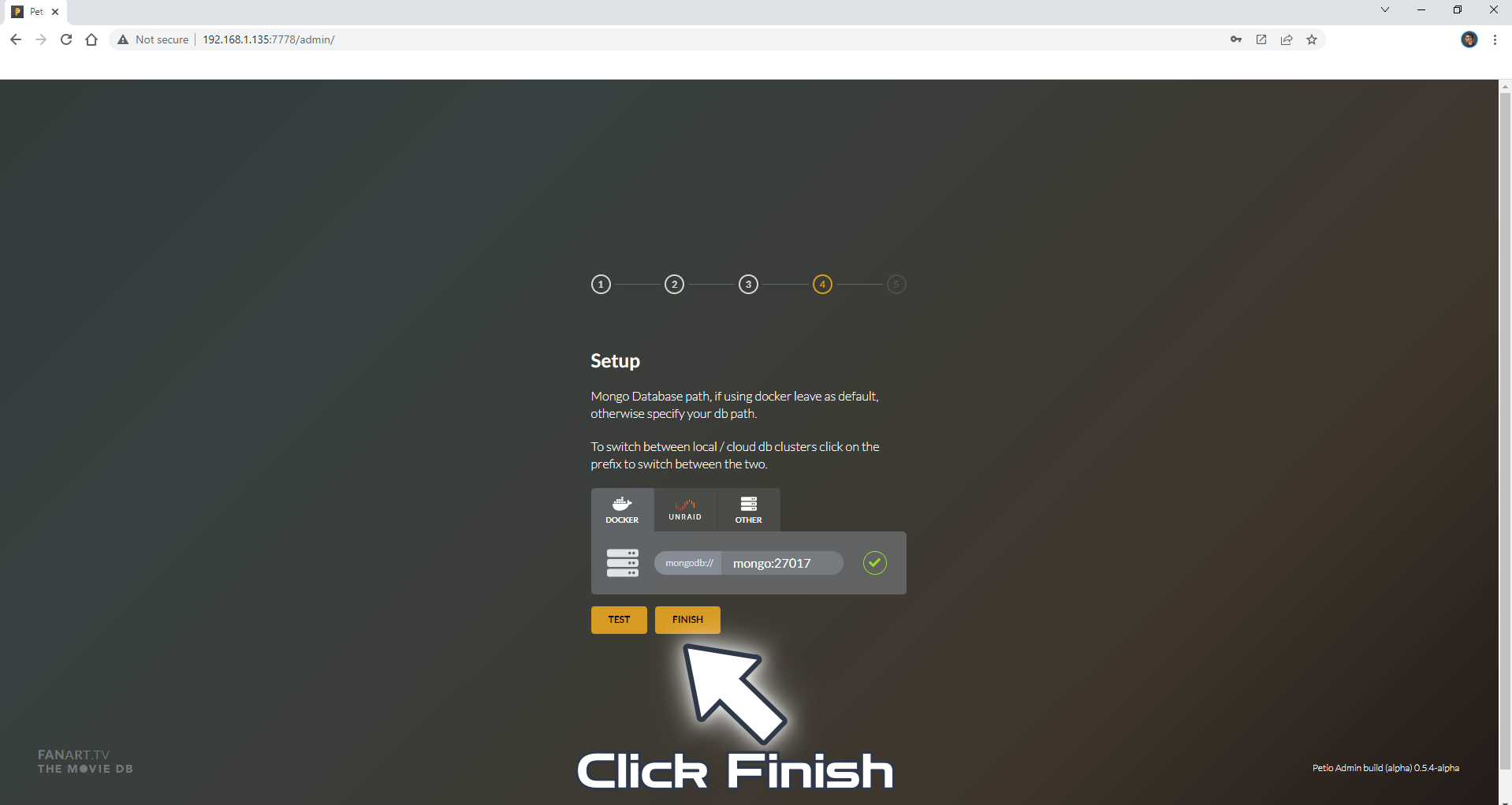
STEP 16
Log in with your own credentials. You can use your own Plex email and your Petio Admin Password you have previously created at STEP 13. Follow the instructions in the image below.
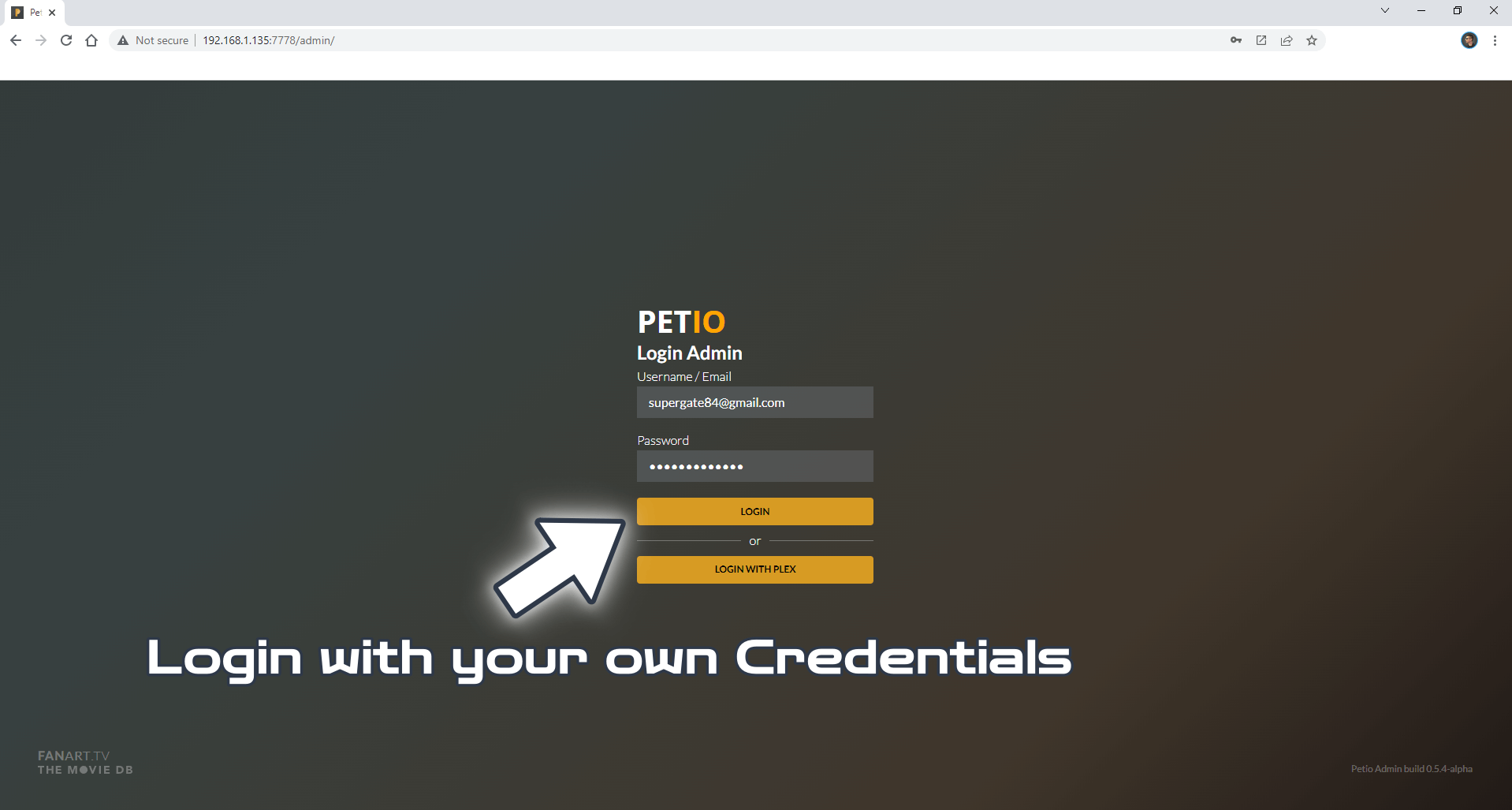
Enjoy Petio!
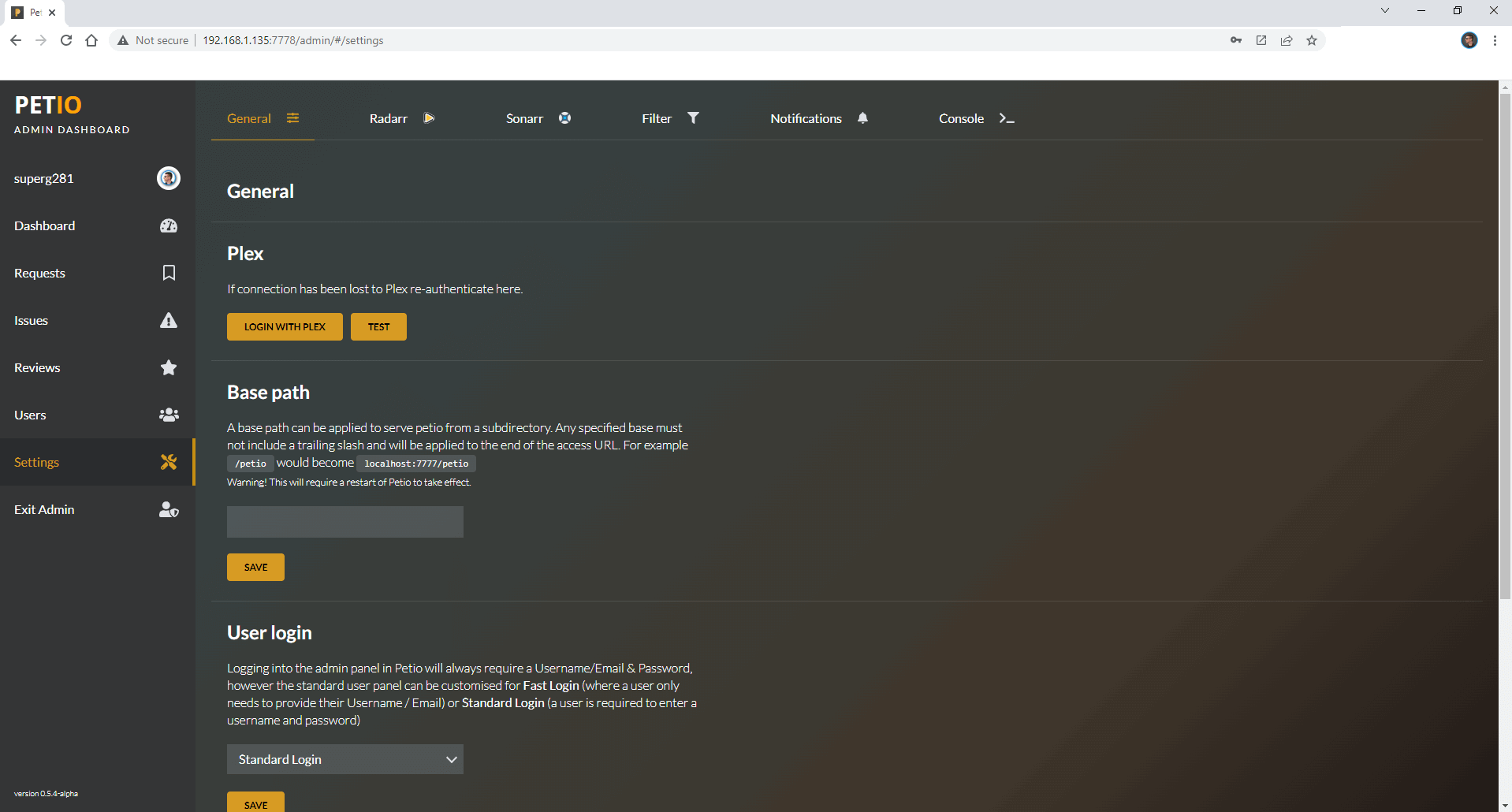
Note: If you want to run the Petio container over HTTPS, check my guide on How to Run Docker Containers Over HTTPS. In order to make Petio work via HTTPS, it’s mandatory to activate WebSocket.
Note: Can I run Docker on my Synology NAS? See the supported models.
Note: How to Back Up Docker Containers on your Synology NAS.
Note: Find out how to update the Petio container with the latest image.
Note: How to Free Disk Space on Your NAS if You Run Docker.
Note: How to Schedule Start & Stop For Docker Containers.
Note: How to Activate Email Notifications.
Note: How to Add Access Control Profile on Your NAS.
Note: How to Change Docker Containers Restart Policy.
Note: How to Use Docker Containers With VPN.
Note: Convert Docker Run Into Docker Compose.
Note: How to Clean Docker.
Note: How to Clean Docker Automatically.
Note: Best Practices When Using Docker and DDNS.
Note: Some Docker Containers Need WebSocket.
Note: Find out the Best NAS Models For Docker.
Note: Activate Gmail SMTP For Docker Containers.
This post was updated on Friday / August 29th, 2025 at 12:43 AM
